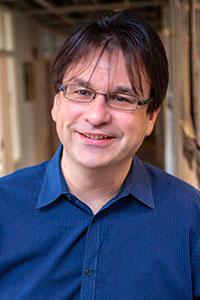
20 Jul TSRC Town Talk: “Solar Geo-engineering: Edge Off Climate Change?
The Telluride Science Research Center hosts Harvard Professor Frank Keutsch. His talk, titled “Solar Geo-engineering: Taking the Edge off Climate Change?” is the sixth in a seven-week series of Town Talks presented by TSRC. The event takes place at the Telluride Conference Center in Mountain Village on Tuesday, July 24, 2018, 6:30 p.m. Admission is free; cash bar opens at 6 p.m.

Frank Keutsch, Stonington Professor of Engineering and Atmospheric Science at Harvard.
Science and innovation have had some horrible and wonderful impacts on our environment. Now, science is working on reversing the effects of man-made climate change.
On Tuesday, July 24 Professor Frank Keutsch will give his talk, titled “Solar Geo-engineering: Taking the Edge off Climate Change?” His focus will be on the potential to cool down the temperature of the earth and the importance of researching this as a possible remedy, whether implemented or not.
In 2016, the International Panel on Climate Change announced a goal to keep the change in the earth’s temperature at or less than 1.5 degrees Celsius by the end of the century.
“With the way that climate change is progressing, it is hard to believe that this goal will be reached,” Keutsch said.
Although Keutsch’s research looks at ways to potentially reduce the impacts of climate change, it does not offer a solution to end global challenge, only at ways to mitigate the harmful effect of heating up our planet.
“The first time I heard about this, I thought it was entirely crazy,” Keutsch said. “The idea that you could put materials in the stratosphere to cool down the planet just sounds, in many ways, terrifying and crazy. But the more I learned about climate change, I actually find that equally terrifying.”
When a volcano erupts, particulate matter forms in the stratosphere. Although these particles have harmful effects, like destroying some of the ozone layer, they also reflect sunlight back into space. Keutsch’s research looks into taking a page out of natures book and finding a material that can mimic the particulate matter already in the stratosphere, but minimizing negative side effects.
“Most people’s initial reaction is quite negative to this, and I think that’s entirely appropriate,” Keutsch said. “The idea that humans could intentionally interfere with their environment and really control the outcome has a lot of hubris involved with it.”
There are some deterrents from even doing research on this topic because the research does not address the origin of the problem and the idea that changing the environment in a lab is scary. Although Keutsch hopes that his research will never be implemented, he points out that it is good to have the knowledge about these particles in case they are needed in the future.
“I think there’s these two big contrary opinions that ‘the risk in doing research is so big one shouldn’t actually do it’ or ‘is it actually a risk not to do research on this.’” Keutsch said. “And I don’t think I have the right answer for this, but my opinion is one should choose knowledge over ignorance.”


Sorry, the comment form is closed at this time.